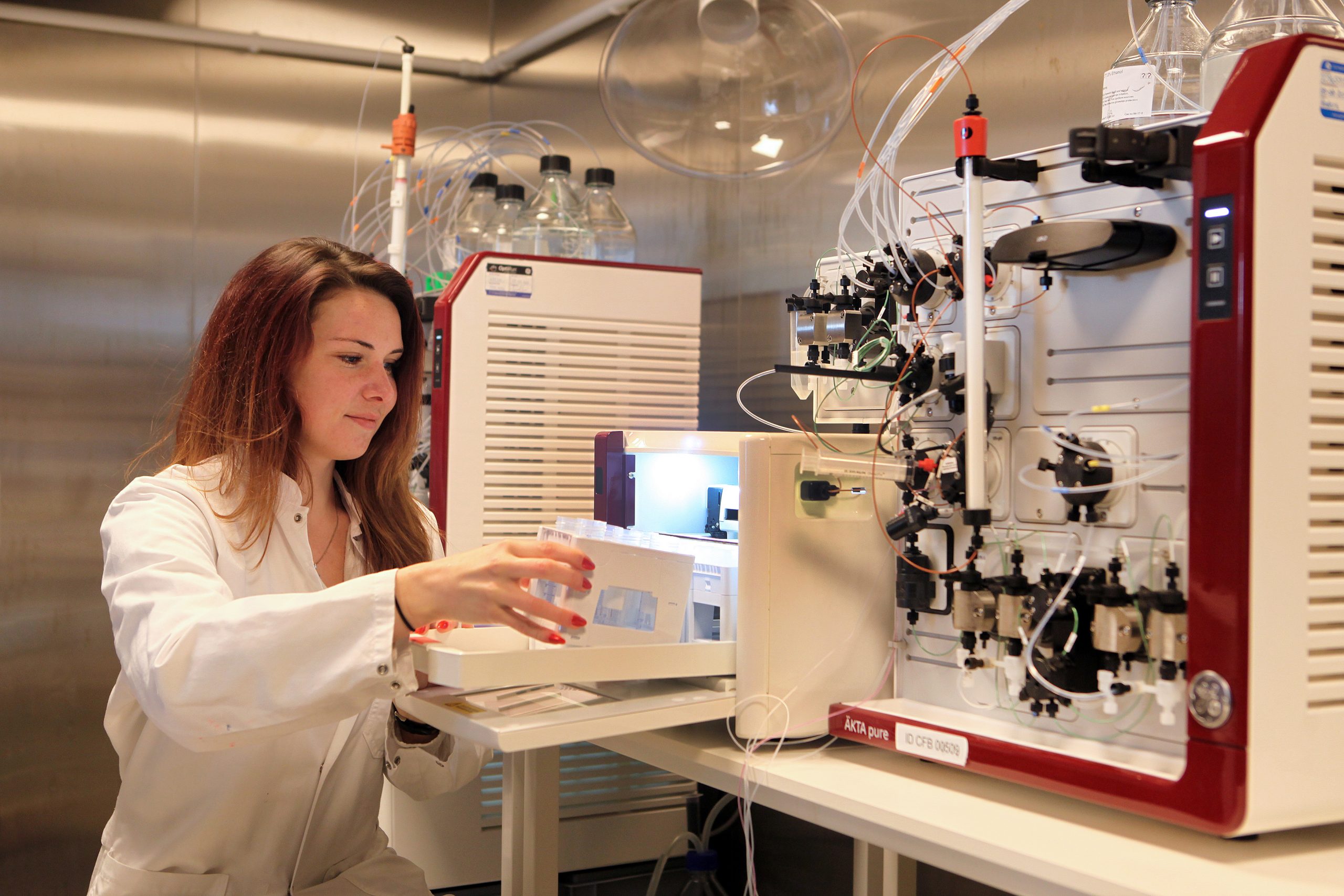DTU is increasing its activities in research and education in the development of cell cultures for production of proteins from hamster cells (CHO cells) for use in biological pharmaceuticals, which are in great demand by companies in the pharmaceutical industry. The increase in activities in this field is funded by an initial grant of DKK 20 million from the Novo Nordisk Foundation.
The grant makes it possible to establish a research and teaching environment in Cell Culture Engineering at international elite level and to increase the focus on the establishment of industrial collaborations in this field. The research environment will be based on the existing environment in The Novo Nordisk Foundation Center for Biosustainability, which will be transferred and extended to a National Biologics Facility at DTU Bioengineering.
“DTU sees great prospects in integrating cell culture technologies into our research and study programmes. DTU already has several internationally leading programmes in the development of biological pharmaceuticals. When we combine these activities with CHO cell research in a new National Biologics Facility, we have the academic, professional, and research capacity to establish a brand-new international research and education environment,” says Bjarke Bak Christensen, Head of DTU Bioengineering.
Claus Felby, Senior Vice President of the Novo Nordisk Foundation, welcomes the establishment of the National Biologics Facility.
“The strong focus on bringing the impressive results of the research into CHO cells to the pharmaceutical industry and strengthening the teaching activities is important if we’re to continue to develop Denmark’s positions of strength in biotechnology,” says Claus Felby.
Research into cell cultures based on hamster cells—CHO cells—for the production of proteins was established at DTU in 2012. In just eight years, the research team at the Novo Nordisk Foundation Center for Biosustainability has succeeded in becoming an international leader in the development of new cell lines that can be used to produce new and better biological pharmaceuticals for a large number of diseases, including cancer and other diseases for which there are currently no optimal treatment methods.
Companies can receive help to develop proteins
In addition to being involved in a number of research breakthroughs in the development of potential pharmaceuticals, The Novo Nordisk Foundation Center for Biosustainability has produced graduates – laboratory technicians, MSc and PhD students, postdocs and senior researchers – who now work in this field and disseminate the latest research in the companies. In the first year, this is supported through the project’s principal focus on establishing industrial collaborations.
“We want to use the research facilities to help small and medium-sized enterprises in their work to produce proteins for research use and development. The idea is that they’re to be able to draw on our expertise, facilities, and educational environment to produce the proteins they need in their preclinical research and development. Correspondingly, we’re to produce proteins that researchers and students can work with in the academic environment,” says Bjørn Voldborg, who becomes Head of the National Biologics Facility.
Read more about the National Biologics Facility at the DTU website.
The Novo Nordisk Foundation has awarded grants totalling DKK 2,1 billion for the Novo Nordisk Foundation Center for Biosustainability.
Further information
Christian Mostrup, Senior Programme Lead, Communication, phone: +45 3067 4805, [email protected]








